Projects
Supporting innovative, cutting edge ideas, the Research Innovation Fund (RIF) provides seed grants for cross-college collaborative projects.
How do I apply?
Project Description
Media
Filters
- Project Types
- All
- Animal Health
- Aquaculture
- Automation and Robotics
- communities
- Communities/Farmers/Relations
- Computational Modeling
- Controlled Environment Agriculture
- Crop Production
- Dairy/Livestock Production
- Data Integration and Processing
- Farmers
- Farmers, Communities, Relationships
- Food Safety
- International Agriculture
- Iot and Networks
- Machine learning
- Machine Learning
- Plant Breeding
- relations
- Sensing Technology
- Soil
- Trustworthy AI
- Years
- Project Creators
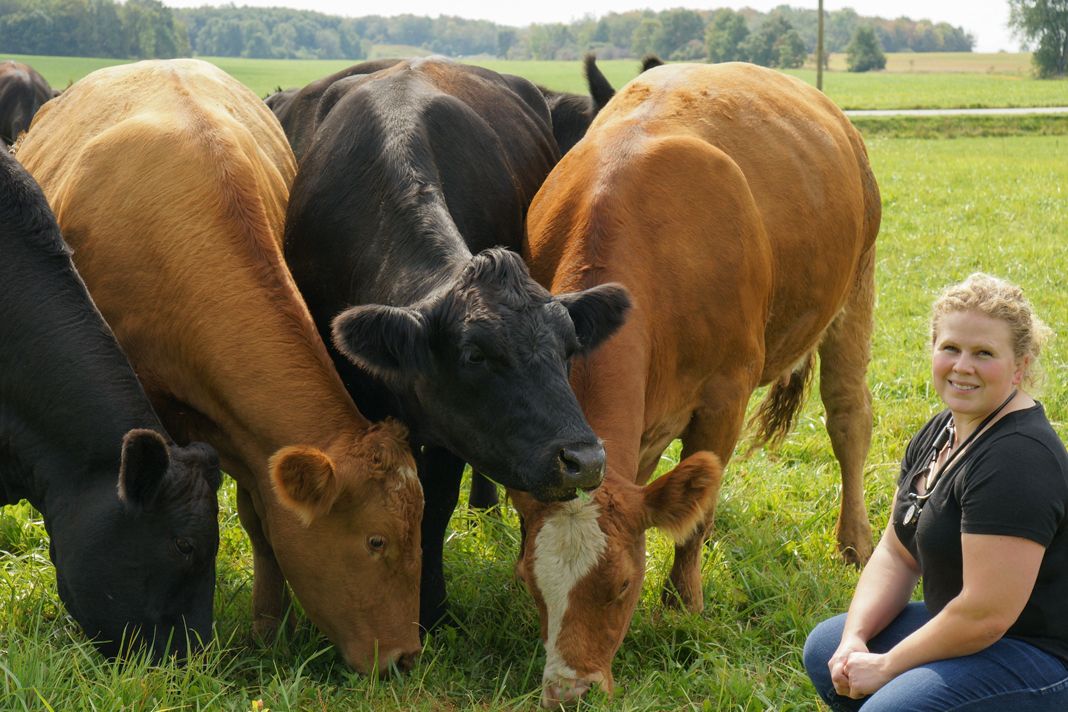
Design and development of a multimodal sensing technology to characterize and quantify changes in suckle behavior in dairy breed calves that experience pre-weaning morbidity events
There is growing interest in the use precision technologies for dairy calf management. However, there are currently few sensors commercially available and validated for use in this population. The objective of this project will be to develop novel and rugged multimodal sensors for integration with automated milk feeding stations; to measure and characterize suckle behavior including pressure sensing (pattern, duration, speed), oral contact temperature (at the point of maximum contact on the palate), and vibrations (created while breathing during suckling) in healthy and diseased pre-weaned dairy breed calves; and, to determine associations of changes in these parameters with morbidity and mortality outcomes in dairy breed calves prior to weaning. The ability to detect subtle physiological and behavioral derangement in group housed calves fed by automated milk feeders will improve early disease detection in dairy calves, inform decisions on disease intervention, monitor recovery, and improve overall calf health and welfare.
Taika von Konigslow (CVM); Tapomayukh Bhattacharjee (CIS)
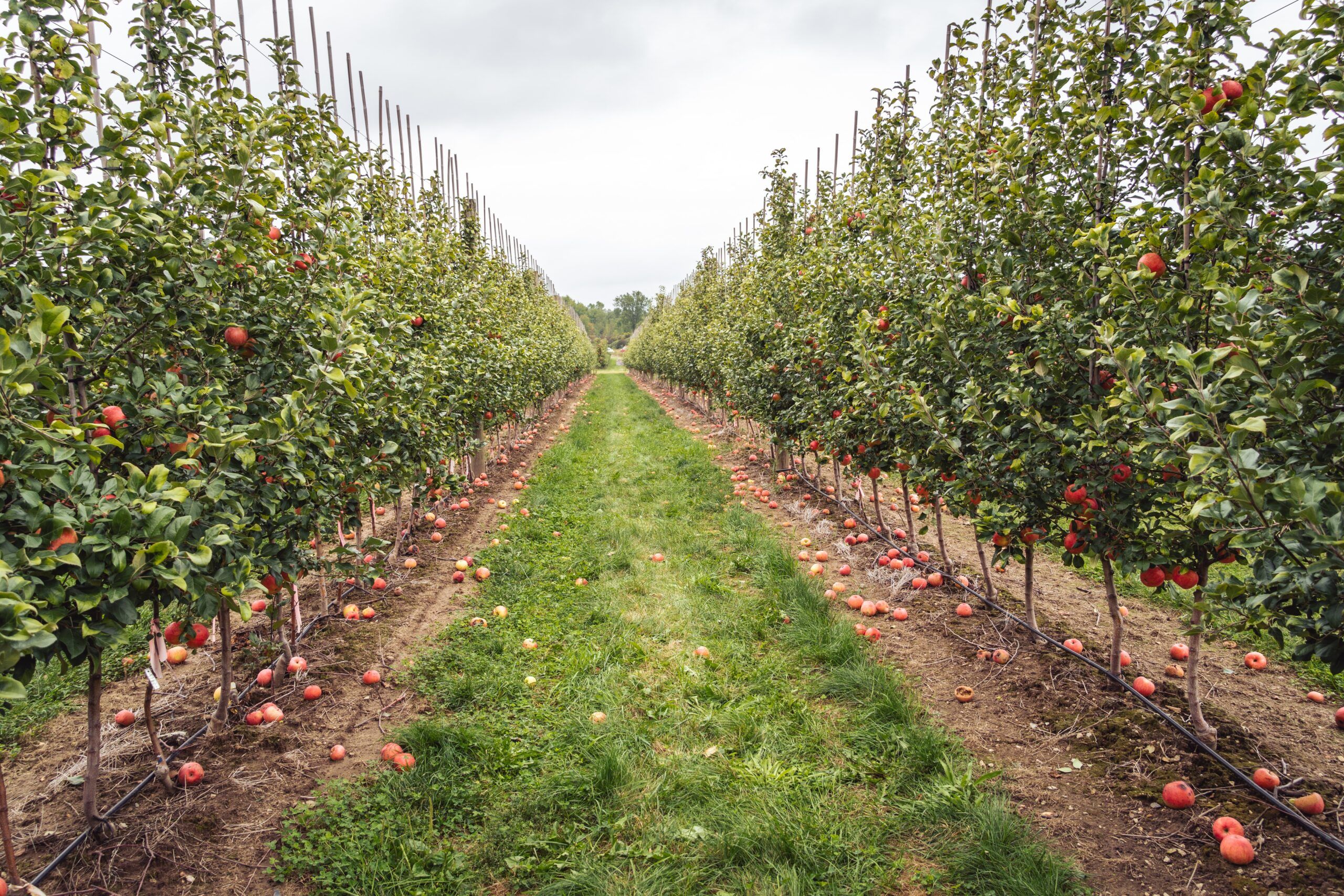
Quantifying 3D vegetative growth and light environment for orchard trees with terrestrial lidar and computational modeling
In orchard plantation systems, vegetative growth is a critical plant ecophysiological process that regulates tree architecture, carbon sequestration, and production of tree crops. Tree carbon allocation and growth patterns are determined by both genetic differences and tissue-level micro-environment. However, accurate and cost-effective quantification of tree vegetative growth has been challenging, especially at fine spatial scales (e.g. branch-level). In this project, we propose to use portable terrestrial laser scanning (TLS) to track fine-scale 3D changes in leaf area and woody volume for several cultivars of apple trees. The project will generate public and accessible workflow and software to quantify 3D tree architecture and vegetative growth and enhance our quantitative and predictive understanding of plant carbon allocation, which can guide sustainable management (e.g., pruning and optimizing carbon sequestration) for tree plantations and forests.
Xiangtao Xu (CALS); Steven Marschner (CIS)
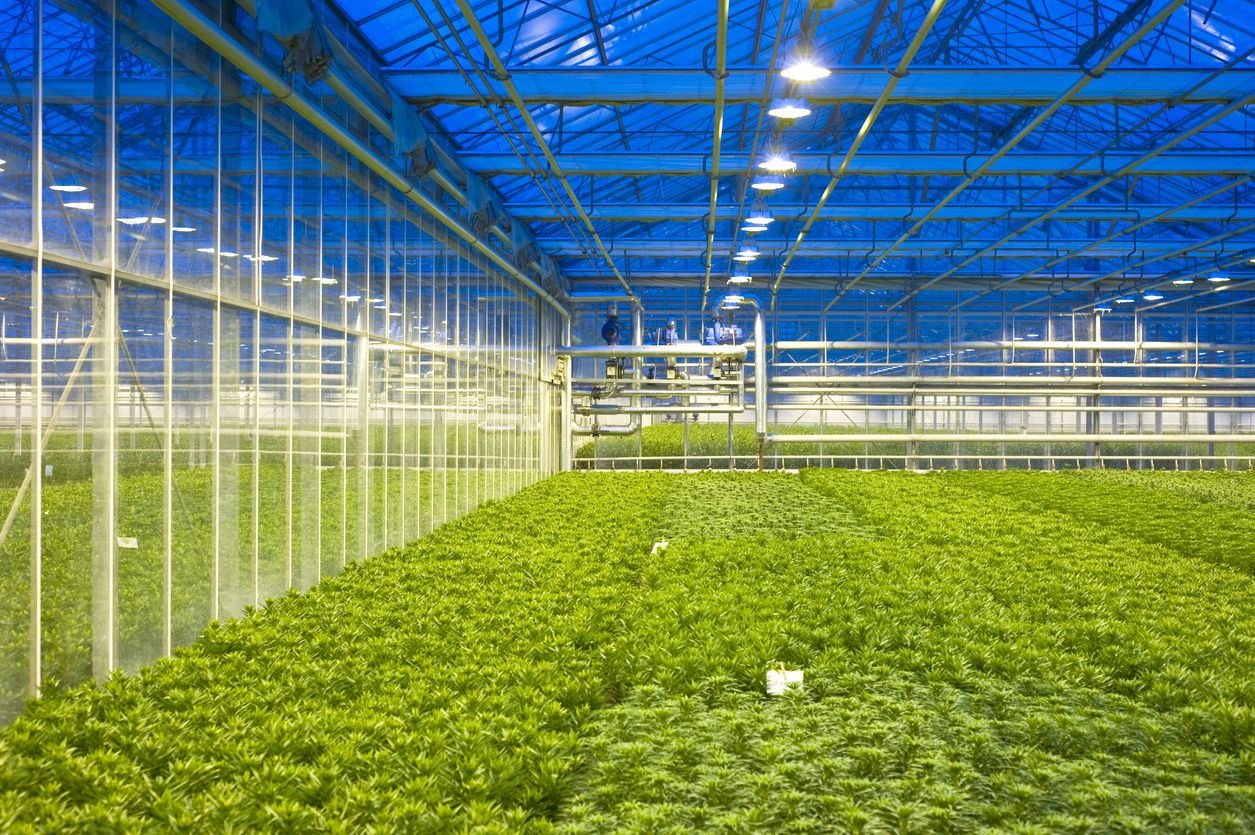
Advancing Autonomous Greenhouse Technology with AI for Sustainable Food and Plant Production in Controlled Environment Agriculture
Controlled environmental agriculture (CEA) is a technology-based approach to sustainable food production using facilities like semi-closed greenhouses and exhibits advantages in terms of a potential higher productivity and quality, as well as robustness to external climatic conditions. CEA has been considered as a popular approach to food production at locations with harsh climate condition, in Space Farming and Urban Agriculture, and for the emerging portable plant factories within shipping containers. While the availability of skilled growers capable of managing high-tech greenhouses remains scarce, the increasing adoption of advanced Digital Tools enables the development of automatic and efficient operations in high-tech greenhouses to further improve the productivity and reduce the cost. This project aims to address technological challenges by integrating artificial intelligence (AI), sensing, mobile robots, and Internet of Things (IoT) tools and methods to develop a state-of-the-art digital platform for autonomous greenhouse to address an emerging and important problem that has the potential of paving the way of future farming practices that could be resilient to the climate, location, and space constraints.
Fengqi You (COE); Neil Matteson (CALS); Yu Jiang (CALS)
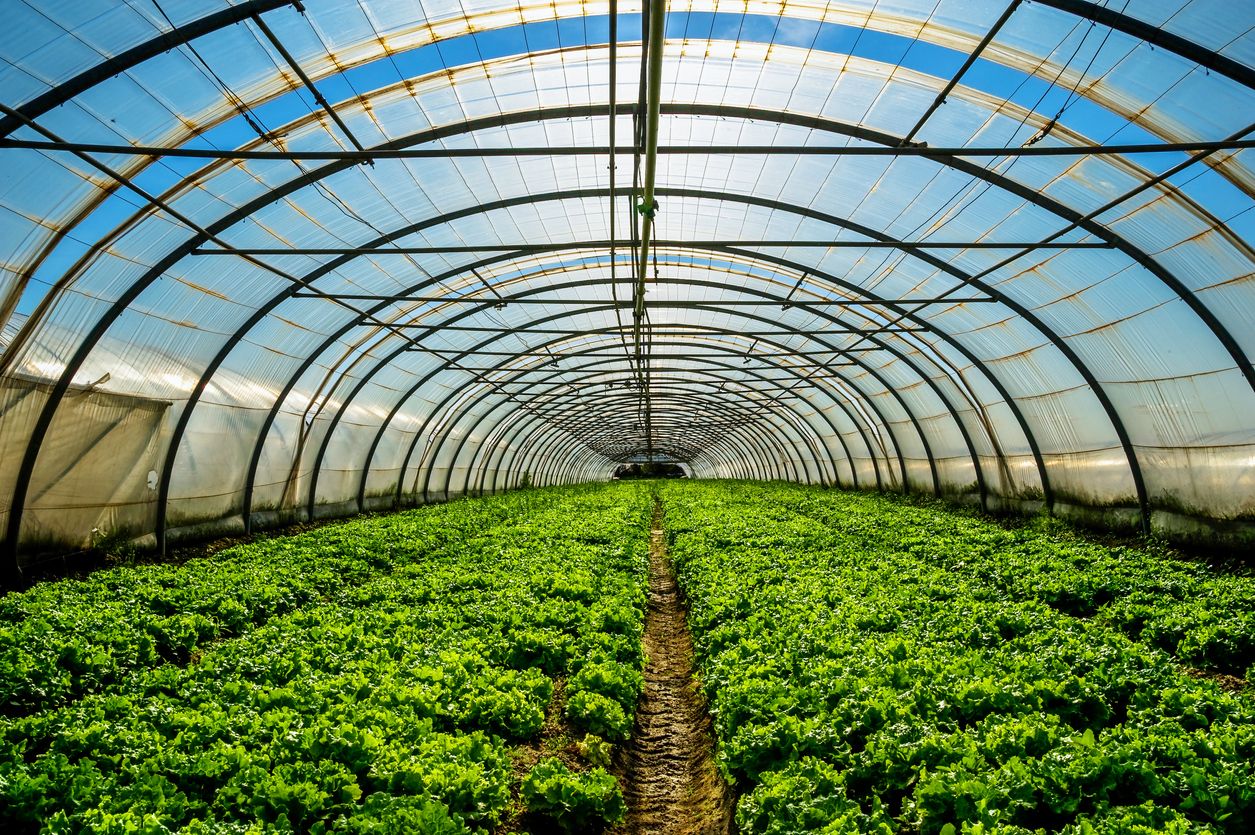
Advancing Autonomous Greenhouse Technology with AI for Sustainable Food and Plant Production in Controlled Environment Agriculture
Controlled environmental agriculture (CEA) is a technology-based approach to sustainable food production using facilities like semi-closed greenhouses and exhibits advantages in terms of a potential higher productivity and quality, as well as robustness to external climatic conditions. CEA has been considered as a popular approach to food production at locations with harsh climate condition, in Space Farming and Urban Agriculture, and for the emerging portable plant factories within shipping containers. While the availability of skilled growers capable of managing high-tech greenhouses remains scarce, the increasing adoption of advanced Digital Tools enables the development of automatic and efficient operations in high-tech greenhouses to further improve the productivity and reduce the cost. This project aims to address technological challenges by integrating artificial intelligence (AI), sensing, mobile robots, and Internet of Things (IoT) tools and methods to develop a state-of-the-art digital platform for autonomous greenhouse to address an emerging and important problem that has the potential of paving the way of future farming practices that could be resilient to the climate, location, and space constraints.
Fengqi You (COE); Neil Matteson (CALS); Yu Jiang (CALS)
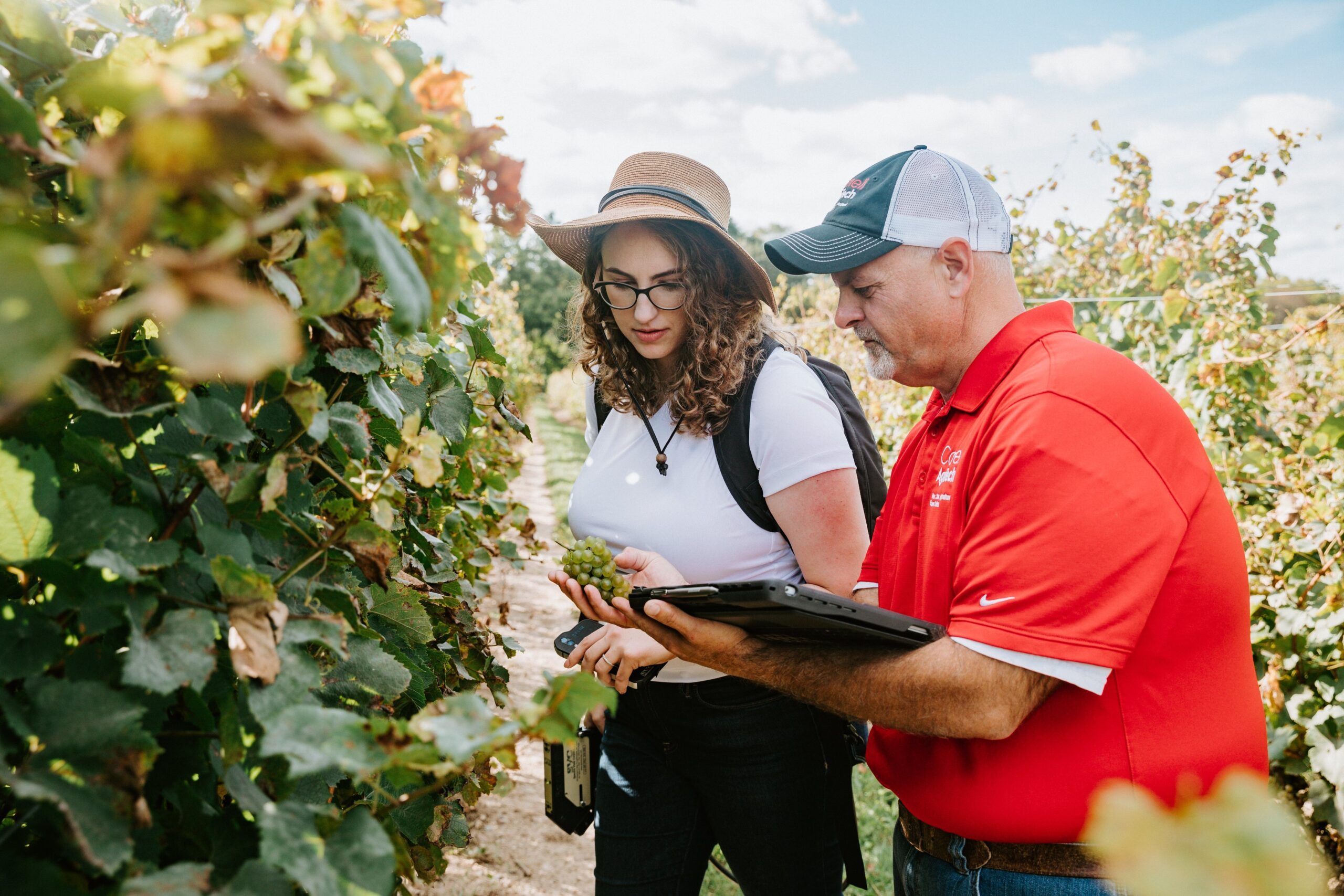
Accelerating the application and adoption of remote sensing decision support in Northeastern viticulture
This project proposes to accelerate the application and adoption of remote sensing in Northeastern viticulture through an approach focused in research and extension with large implications for the NYS grape-growing region and the empowerment of local farmers. Remote sensing is a widely popular tool in most major grape growing regions of the world but has yet to be adopted in the eastern U.S. Using a combination of high resolution (sub-1m) satellite imagery, hyperspectral solar induced fluorescence (SIF), and synthetic aperture radar (SAR) sensing data the project will develop new methodology for crop and disease management in conjunction with CCE and in partnership with eight local growers. Research results will guide the project vision to develop an integrated decisions support system informing early crop and disease management intervention.
Katie Gold (CALS), Rowena Lohman (COE), Justine Vanden Heuvel (CALS), Ying Sun (CALS), Terry Bates (CCE), James Meyers (CCE), Jennifer Russo (JCB), Alice Wise (CCE), Hans Walter-Peterson (CCE), Yu Jiang (AgriTech)
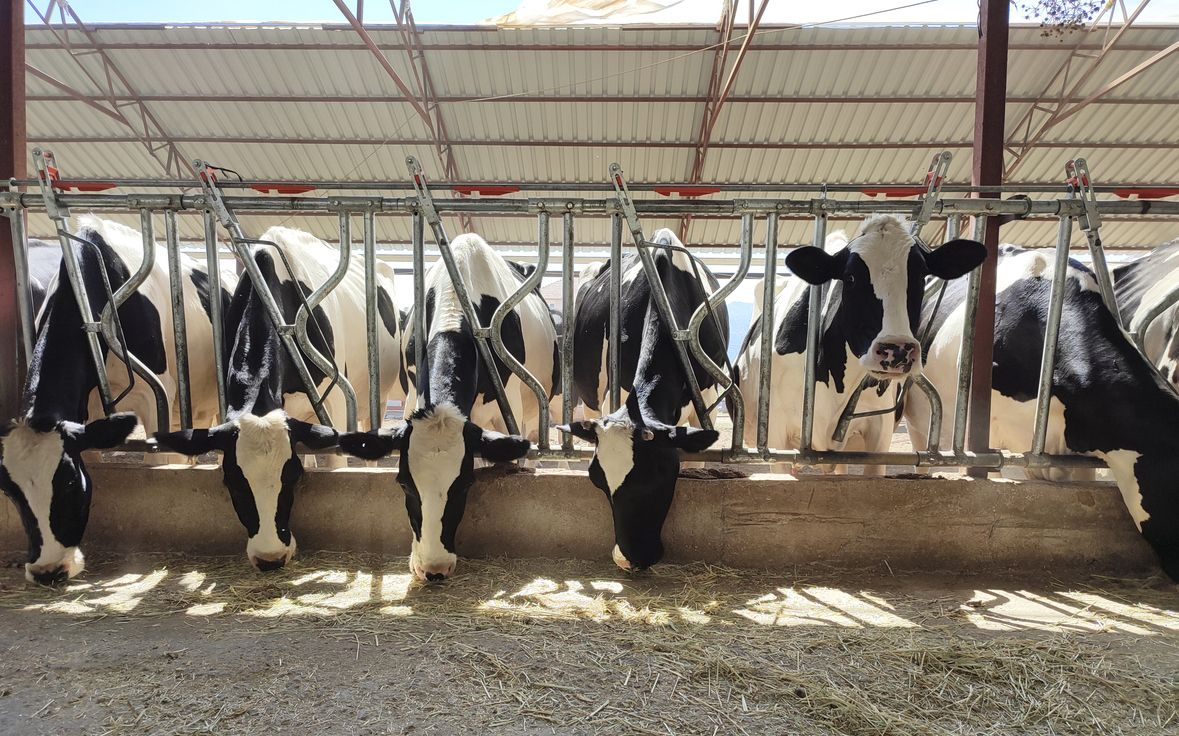
Automating management of teat tissue condition in dairy cows through machine learning
Mastitis, a significant concern in the dairy industry due to marked reduction in milk production and the reduced immune system for dairy cattle, is assessed through physical examinations of a dairy cow’s teat health. This costly, time-consuming approach is error prone and labor intensive. This project proposes first to use a multi-modality machine learning system to measure for short term changes in teat tissue while also developing an image and video based deep learning classifier to predict long-term changes. The sensitivity and specificity of the machine learning system will be compared with the traditional, manual approach. Results will potentially impact current milk harvesting strategies, the advancement of udder health, animal well-being, and sustainability of farms with local impact in the NYS dairy industry and across the globe.
Basran (CVM), K. Weinberger (CIS), I. Porter (CVM), M. Wieland (CVM), J. Giordano (CALS)
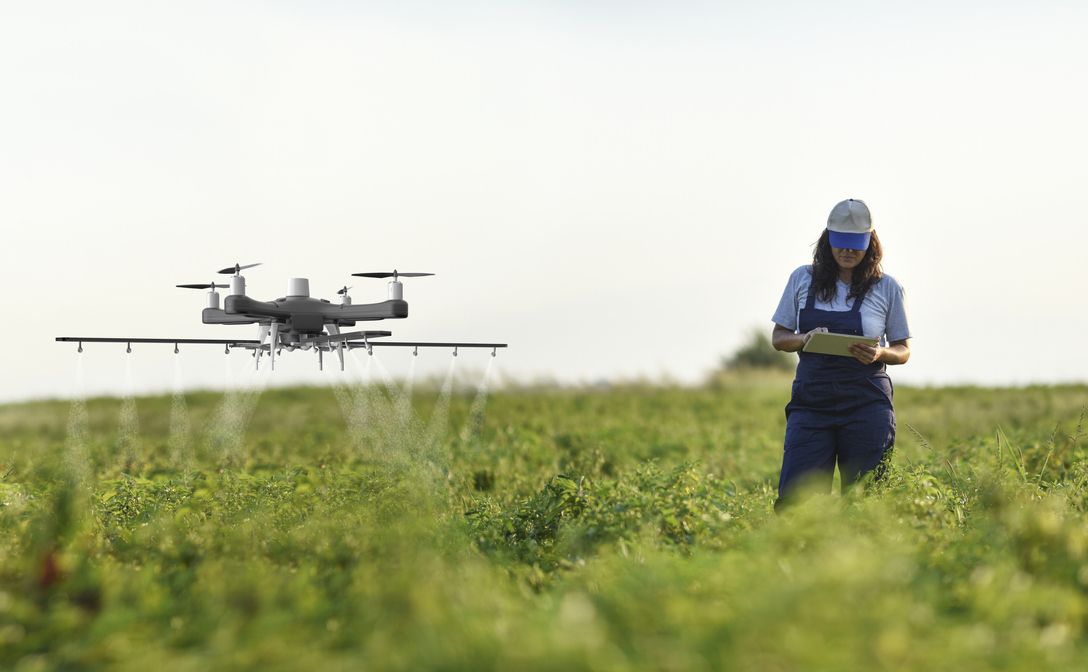
Improving strawberry yield through native and robotic pollinators
The proposed work will integrate automated monitoring of wild and managed pollinators with cutting-edge robotic pollination, laying the groundwork for a bio-hybrid system capable of observing, predicting, and improving yield in pollen-limited crops. Specific innovations include durable, low power insect camera traps, mobile end-effectors for local electrostatic pollination, rapid cross-pollination by quadcopters, and growth models conveyed to the farmer through an online app. These technologies will be validated with strawberry plants over several bloom cycles in the greenhouse, and through field experiments in a commercial farm. Short term, these technologies can be seamlessly integrated into current farm practices. Long term, they may be managed by automated schedulers to ensure optimal yield long before harvest. In a broader sense, this research opens a new frontier in precision agriculture, where robots not only have the intelligence to overcome the challenges of field deployment, but can operate as part of the natural ecosystem around crop plants.
Kirstin Petersen (COE), Scott McArt (CALS)
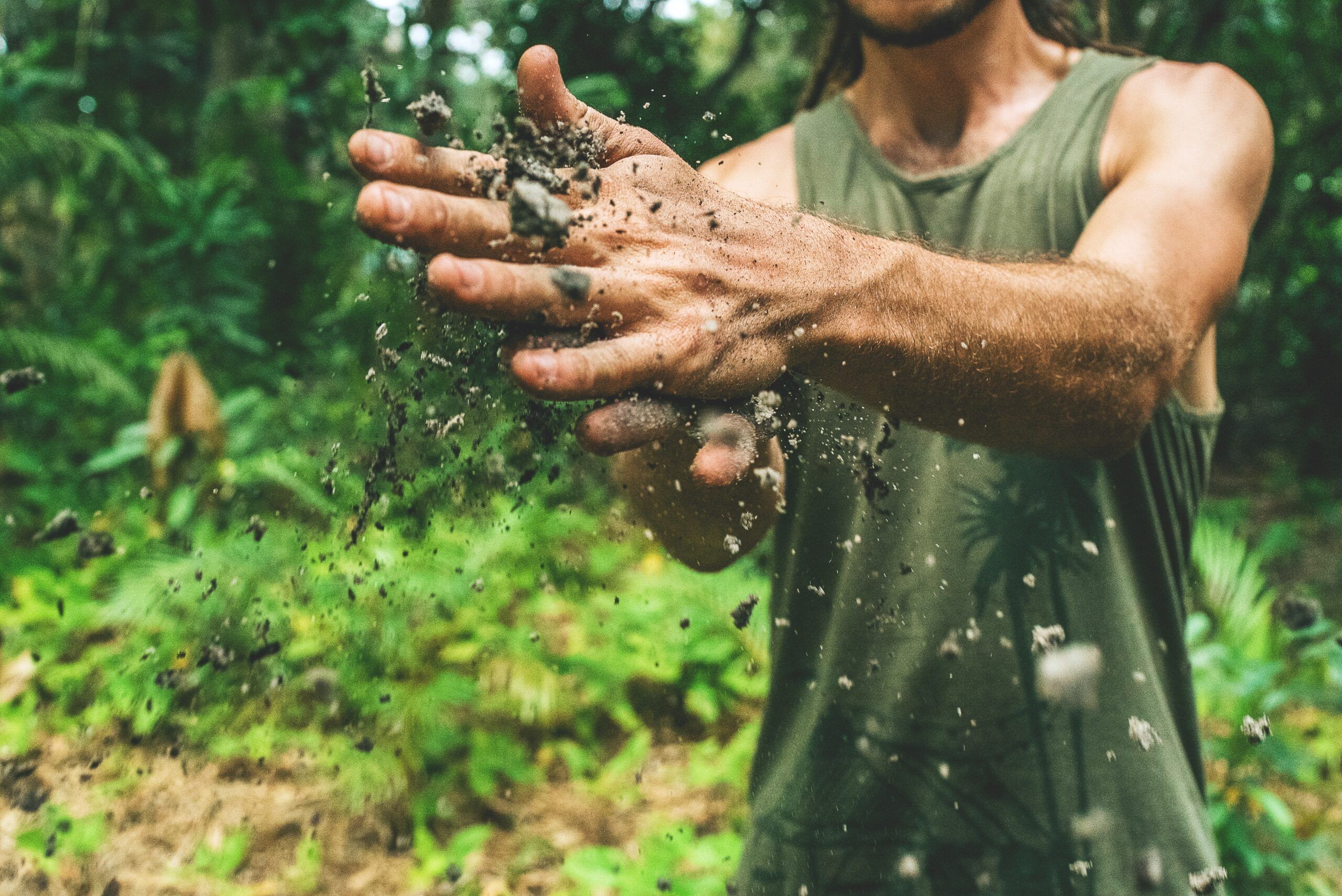
New soil robotics and sensing for soil-root phenotyping of water-use effectiveness
Soil, the microbiome, and plant roots represent a critical frontier in agricultural science and practice. The opacity, heterogeneity, and dynamic nature of soils have severely limited in situ studies, phenotyping, and precise interventions as part of soil and crop management. Here, we will develop two innovations to access real-time information about the availability and flow of water in the rhizosphere: 1) a sensing strategy to provide sub-millimeter resolution of water relations (potential, content, and conductance) within the rhizosphere, in situ; and 2) a soil-swimming robot to provide semi-autonomous exploration of the root zone with multiple sensing modalities. We will pursue experiments with our emerging capabilities guided by scientific questions about roots and rhizosphere to drive new approaches to field-based phenotyping and management of irrigation and fertigation. The technology will lead to improved management of grain, horticultural, ornamental and tree cropping systems. Our project emphasizes a systems-based, trans-disciplinary approach and seeks to enhance and apply new innovations and technology to include below-ground phenotyping (e.g. rhizosphere plant-soil interactions), sensor technology (e.g., real time soil water flux), robotics (e.g., spatio-temporal environmental sampling).
Taryn Bauerle (CALS), Robert Shepherd (COE), Mike Gore (CALS), Johannes Lehmann (CALS), Abe Stroock (COE)

Accelerated and automated stress diagnostics in apple orchards
Apple orchards suffer from large numbers of diseases that can incur serious damage to trees, fruits, and the industry. Effective disease control methods rely on accurate, early diagnostics to implement successful and environmentally-sound management. As disease symptoms vary widely due to age of infected tissues, genetic variations, and light conditions within trees, it is challenging for computer vision models to accurately distinguish between the symptoms of different diseases. Our team of plant pathologists, phenotyping experts and computer vision scientists will develop computer vision models to accurately distinguish between the symptoms of many diseases that can incur serious damage to fruits and fruit trees. We will develop user-friendly apps to enable extension educators and consultants to support growers, and empower them to independently scout their orchards and provide accurate early diagnostics as the basis for successful and environmentally-sound disease management. Based on this work, we aim to lead a global challenge competition in the Fine Grained Visual Classification (FGVC) workshop at the Computer Vision and Pattern Recognition 2020 conference to find novel solutions to major challenges in computer vision.
Awais Khan (CALS), Serge Belongie (CIS), Noah Snavely (CIS)
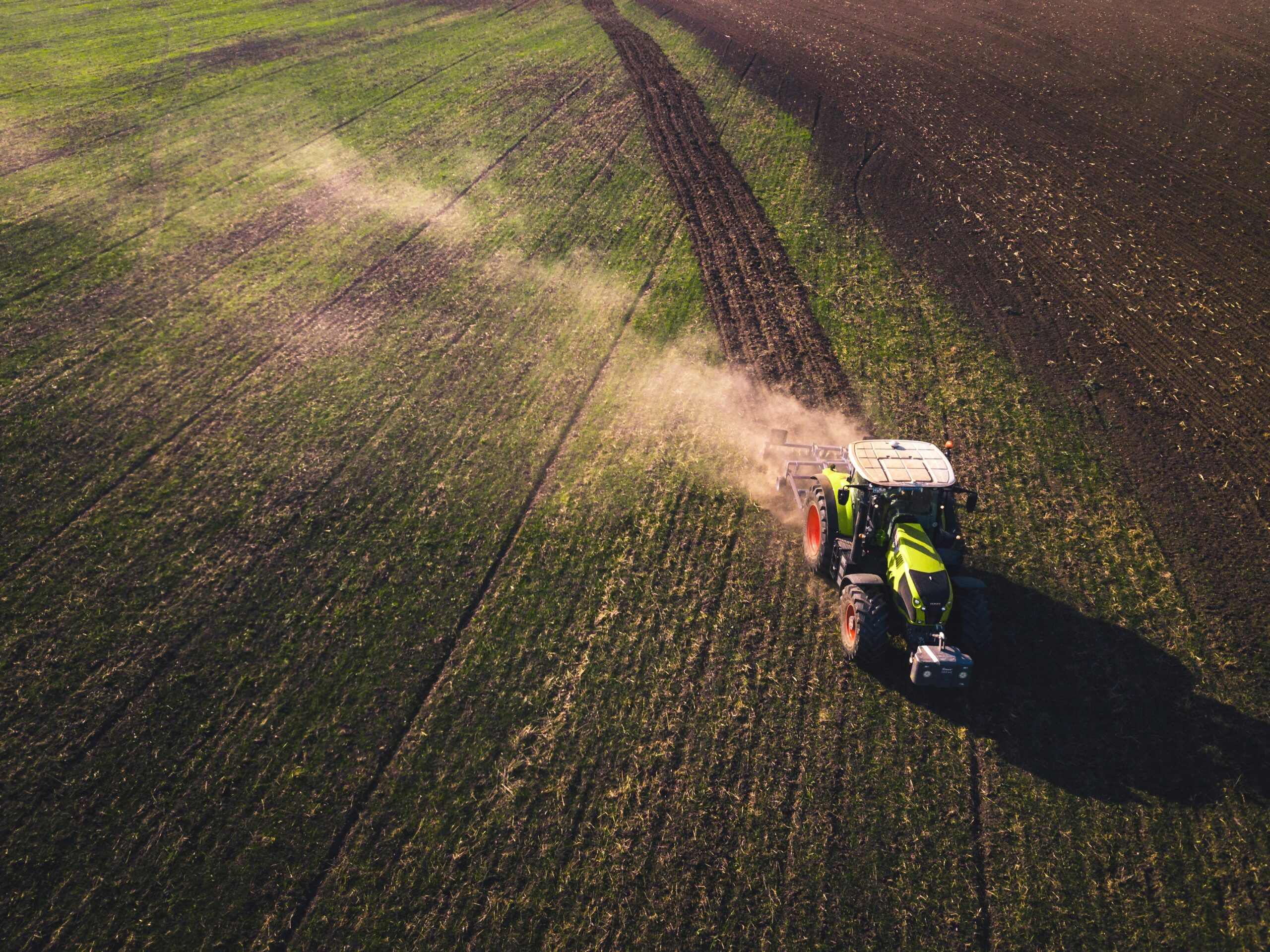
Carbon farming: Combining machine intelligence, big data and process models to support this emerging sector
Restoration of soil organic carbon plays a critical role in addressing climate change while improving agricultural efficiency and reversing land degradation. However, scaling up of soil carbon sequestration is impeded by the high cost of monitoring, and by high levels of uncertainty in soil carbon predictions. Current soil organic carbon maps are based only on spatial interpolation of geographic, environmental, and climatic co-variates. As such, they do not distinguish the impacts of land management, including factors such as tillage regimes, crop rotations, crop and varietal selection, residue management, manure management, irrigation, cover crops, soil and water conservation etc. To provide an improved soil carbon maps that include these factors, we will train and validate machine learning and deep learning models using detailed spatial data on soils, vegetation, climate, and cropping practices. This project aims to create a step change in the accuracy of prediction of soil organic carbon by combining Cornell’s state-of-the-art soil mechanistic modeling with machine learning, deep learning, and spatially-explicit big data to create a “grey-box digital twin”. This will provide a platform to drive evidence-based policy and support massive scaling up of optimized investment in soil health and climate-change mitigation.
Dominic Woolf (CALS), Johannes Lehmann (CALS), Fengqi You (COE)
Become a Fellow
Stay up to Date
If you have a disability and are having trouble accessing information on this website or need materials in an alternate format, contact [email protected] for assistance.
CIDA Copyright 2023 | CIDA is an equal opportunity employer | Terms of Use | Privacy Policy